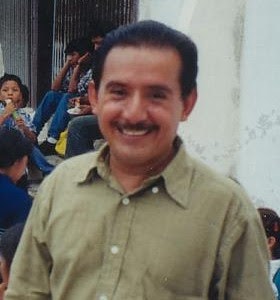Conservation of the Scarlet Macaw ecosystem in Laguna del Tigre National Park, Guatemala
Petén in north Guatemala contains the largest area of uninterrupted humid tropical forest in Mesoamerica. However, despite the area’s biological riches, following years of civil war, biodiversity conservation has taken a back seat to the more pressing socio-economic problems faced by Guatemala.
In 1964, the rural population was just 14,000, and legislation put in place in 1990 protected much of the area as part of the Maya Biosphere Reserve (MBR). However, over the past 35 years, the government has granted land concessions in the Petén as part of a government-sponsored colonisation. This led to the influx of many Mayan communities fleeing discrimination and human rights abuses elsewhere in Guatemala and seeking new lands to farm in the Petén, pushing the human population up to an estimated 700,000 with an annual growth rate of almost 10%.
In 1997, the Guatemalan government signed a convention in an attempt to regulate indigenous settlements in protected areas. The convention was designed to integrate established communities into the conservation activities of the national park authorities by means of a land management plan, as long as the community resided in a special use zone within the park. The communities thereby became custodians of their natural environment.
Carlos Soza was a local farmer until joining ProPetén in its early days. A man completely committed to conservation and development of his homeland, Carlos worked with ProPetén and the Q’eqch’i Maya community of Paso Caballos in one of the core protected areas. The focus of ProPetén, a local NGO, is to set up to promote the social and economic well-being of those living in the MBR on a sustainable basis. ProPetén has as its flagship the Scarlet Macaw, a species threatened with extinction because of the loss of its natural habitat through encroachment and the collection of eggs for the pet trade. Since ProPetén started working in the area 10 years ago, there has been less than 2% loss of forest cover – no mean achievement.
Sadly, in March 2003, Carlos died unexpectedly. His loss has been felt by all but the work he focused on – helping communities set up sustainable food production enterprises through agroforesty, environmental education, eco-business development in the form of community ecotourism – all continue to help focus conservation initiatives in the Ruta Guacamaya (Scarlet Macaw Trail).
Working directly with communities in the implementation of the forest and land management plans, ProPetén continues to promote research into new forest products as well as monitor forest ecology and support community training.
In 2003, before his death, Carlos Soza and ProPetén received Continuation Funding in recognition of their ongoing work in the Maya Biosphere Reserve.







